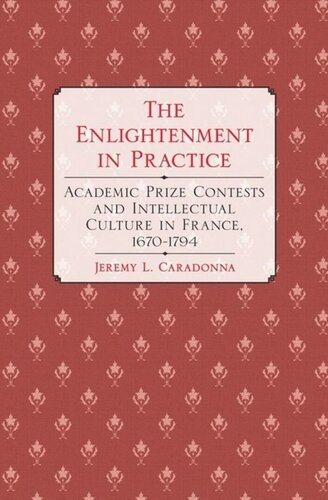

Most ebook files are in PDF format, so you can easily read them using various software such as Foxit Reader or directly on the Google Chrome browser.
Some ebook files are released by publishers in other formats such as .awz, .mobi, .epub, .fb2, etc. You may need to install specific software to read these formats on mobile/PC, such as Calibre.
Please read the tutorial at this link: https://ebookbell.com/faq
We offer FREE conversion to the popular formats you request; however, this may take some time. Therefore, right after payment, please email us, and we will try to provide the service as quickly as possible.
For some exceptional file formats or broken links (if any), please refrain from opening any disputes. Instead, email us first, and we will try to assist within a maximum of 6 hours.
EbookBell Team

5.0
70 reviewsPublic academic prize contests—the concours académique—played a significant role in the intellectual life of Enlightenment France, with aspirants formulating positions on such matters as slavery, poverty, the education of women, tax reform, and urban renewal and submitting the resulting essays for scrutiny by panels of judges. In The Enlightenment in Practice, Jeremy L. Caradonna draws on archives both in Paris and the provinces to show that thousands of individuals—ranging from elite men and women of letters artisans, and peasants—participated in these intellectual competitions, a far broader range of people than has been previously assumed.
Caradonna contends that the Enlightenment in France can no longer be seen as a cultural movement restricted to a small coterie of philosophers or a limited number of printed texts. Moreover, Caradonna demonstrates that the French monarchy took academic competitions quite seriously, sponsoring numerous contests on such practical matters as deforestation, the quality of drinking water, and the nighttime illumination of cities. In some cases, the contests served as an early mechanism for technology transfer: the state used submissions to identify technical experts to whom it could turn for advice. Finally, the author shows how this unique intellectual exercise declined during the upheavals of the French Revolution, when voicing moderate public criticism became a rather dangerous act.